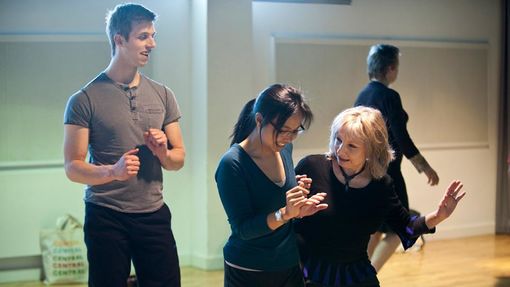Writer for Act II Festival - Avery Rabbitt
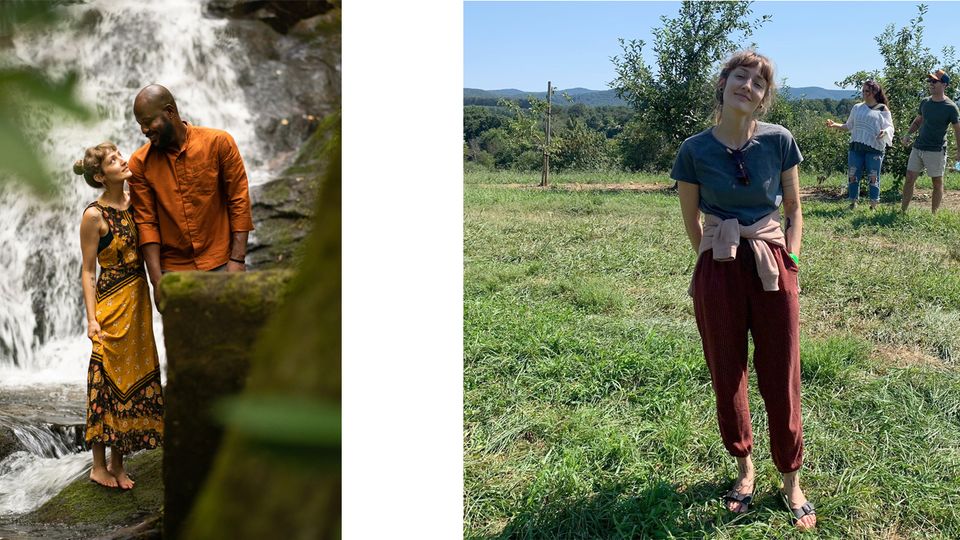
Today we are speaking with Avery Rabbitt, a current student on the Drama and Movement Therapy, MA course about her experience as a Writer for the Act II Festival.
Tell us a bit about what you are getting up to
I’ve written a semi-autobiographical short play called December Head that’s been selected by Act2 Festival.
December Head is a magical semi-autobiographical play set in Nanchang, China exploring foreignness and the collision of worlds with all its messy personal, political, mythical implications. It’s a squiggly and heartfelt play that will take you for a ride, so don’t forget your roller skates. It features a cast of six from east Asia, west Africa, and the US.
The Act2 Festival will open on the second weekend in June. People can find out more on their Instagram, @act2festival.
How did you get involved with the Act II festival?
My friend and housemate, Jasmine Sachdev, knew I was writing a play and sent me the festival application. Jasmine is actually going to be directing the play in the Act II festival.
How I wrote the play had to do with my friend, Melissa Simmons, who is a writer and a director in Atlanta. We actually met in high school! She was the first atheist I ever met in the Bible Belt. We bonded in a production of Dark of the Moon, an Appalachian folk play by Howard Richardson and William Berney. Melissa played Conjur Woman and I played Barbara Allen. Melissa is exceptionally tall, so few directors had the imagination to cast her outside of the character woman type, but she could do it all. She’s got a wicked imagination.
Over the course of the pandemic, we began to meet every week for “Creative Time”, in order to read each other’s work and offer feedback and before we knew it, December Head was taking shape and her feminist horror play was, too. We’ve met every week for over a year now and have more momentum than ever.
What made you want to get involved?
I just wanted to see what the play would look and sound like, really. I wanted to see if it would be any good.
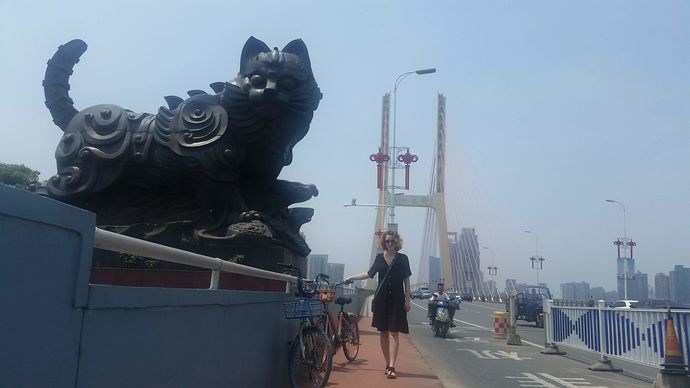
How has this programme related to your coursework?
Because my piece is semi autobiographical, it’s helped me process an overwhelming set of adventures and learning I had while living in China, where I met my partner. It also touches on power and privilege, which I’m constantly working to understand and which plays a massive (and largely undiscussed) role in the drama therapeutic space.
What has surprised you most about your experience?
Seeing the audition tapes reading excerpts I wrote. Some of these actors really understand the characters, which I wasn’t expecting because it’s such a weirdly specific play that’s all about how where you are affects who you are able to be, with characters from Chinese myth, the US, Ghana, etc. But some actors, international students, really get it.
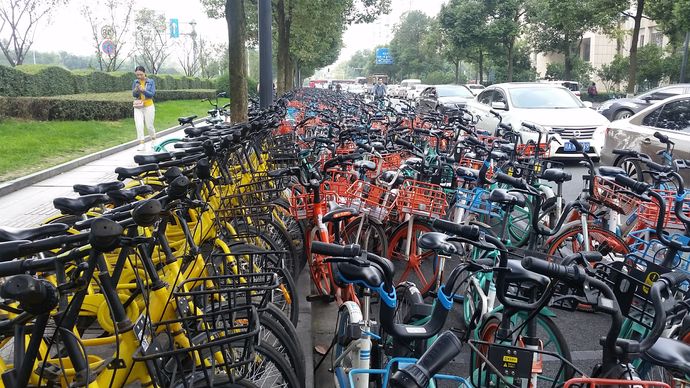
What are you currently working on?
When I’m not dodging COVID, the usual hijinks include— gosh, what do I do with my time?! Panic about the toast burning, take my vitamins, have spontaneous dance/chant/song/rant parties with my partner and housemates, think about Avatar: The Last Airbender, study.
Melissa Simmons and I are also working on a project where we are developing these two characters from the Edwardian era. We have been writing each other letters as those characters. Sometimes I’ll include a photo I’ve printed in my bathroom/darkroom for an extra infusion of old-timey-ness and she has tea-stained paper and a fountain pen. We also still video meet once a week to write scenes for these characters. It’s a fascinating exploration of timescales because the letters, which are all intimate and in character and in real time, take up to six weeks to reach their destination. Meanwhile, on video chat we are just throwing together the past instantly. It’s completely a project born from pandemic boredom; the present excruciatingly extends in front of you, the past is just swirling around, and the future feels almost like an impossibility.
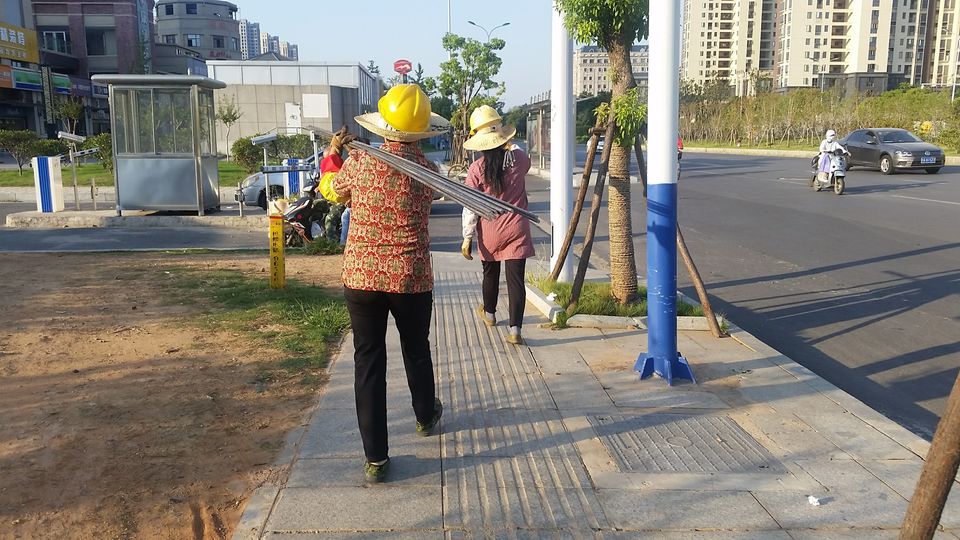
What were you doing before you came to Central?
I was actually living in China. I’m honestly not even sure how I ended up living there for three years. I originally went because I didn’t really have anywhere else to be. After I graduated with my Bachelor’s, I took five months and thru-hiked the Appalachian Trail (AT). That was a tough act to follow. So I went to China, got my TEFL-SAFEA certificate, then taught English and theatre to adults and later children.
I was in Nanchang, a small city by Chinese standards, that has a beautiful, tight-knit foreigner community of people from all over the world - Cape Verde, Afghanistan, Zimbabwe, Trinidad and Tobago, Bulgaria, etc. Some of my favourite people in the world happened to be there and I had no idea. I got married to one of them last year. That’s one of the best parts about adventures. I don’t believe things happen for a reason; the gorgeous, ephemeral love that I’ve known has all come from pure nonsense, from a chance meeting, from the altitude, the weather, the pebble in my shoe, perfectly timed to the nanosecond and not timed at all. That’s when I’ve met the people I’ll always remember. Anyway, that’s what I was doing before I came to Central.
How did you find out about Central and decide to study with us?
I was having trouble deciding between Central and NYU, but I didn’t get a scholarship to NYU and it was too expensive. Plus, I tend to shy away from anything that feels too high-falutin’ or “success” oriented. New York is a harsh, visceral, competitive place.
All things considered, Central was more affordable and London’s Ghanaian community was a better fit for my partner. Now I’m in London, the most high-falutin’ city I’ve ever visited, and I laugh at myself.
What are you planning to do after graduation?
I plan to move back to the US with my partner and we will work between the US and Ghana. In the US, I hope to practice drama therapy full time, teach yoga, coordinate outdoor adventures for young’uns, and get involved in local activism. In Ghana, we are planning to build and live on a carbon-neutral community centre/permaculture farm and continue our practices there.
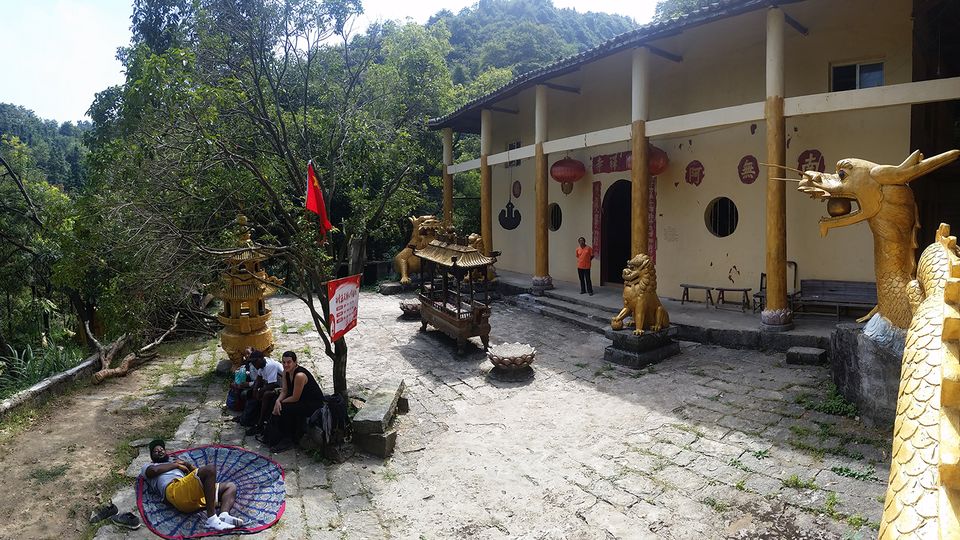
If you want to keep up with Avery, you can follow her on Instagram @averyrabbitt or check out linktr.ee/averyrabbitt.

